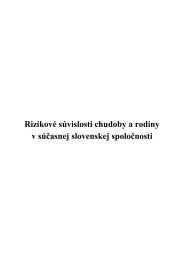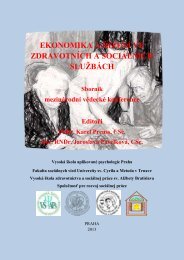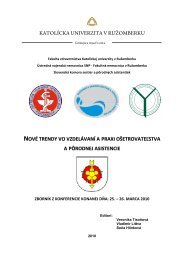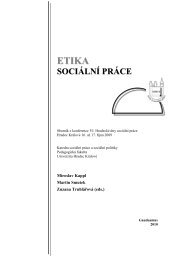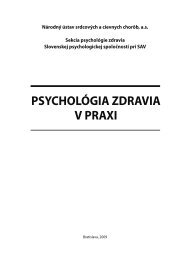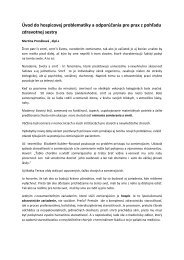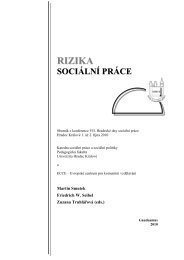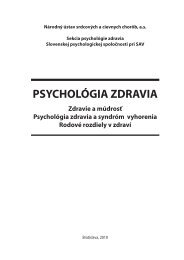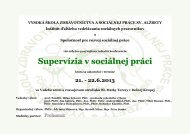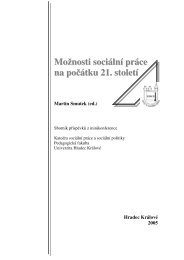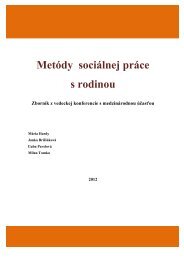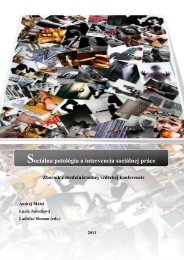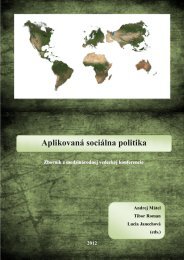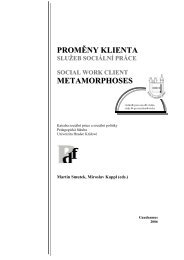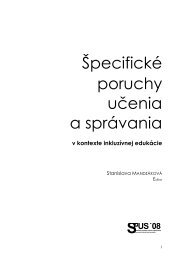Zmena klÃmy â možný dopad (nielen) na obyvateľstvo - Prohuman
Zmena klÃmy â možný dopad (nielen) na obyvateľstvo - Prohuman
Zmena klÃmy â možný dopad (nielen) na obyvateľstvo - Prohuman
You also want an ePaper? Increase the reach of your titles
YUMPU automatically turns print PDFs into web optimized ePapers that Google loves.
participants and to ensure that consent was given both to engage in and remain<br />
participating in the research. The research methods used reflected efforts: to<br />
maximise access to the authentic voices of the children, to be in keeping with<br />
good educatio<strong>na</strong>l practice offering substantial learning opportunities to the participants,<br />
and to incorporate the contribution of the participating children regarding<br />
research design.<br />
Research Phase Two: Exploring Strategies for Introducing<br />
Global Citizenship Education into Early Childhood Education<br />
The second phase of the research involved early childhood educators working<br />
in both preschool and primary school settings. The purpose of this phase of the<br />
research was to identify suitable strategies for and challenges to engaging young<br />
children in global citizenship eduction with the aim of deriving a draft educatio<strong>na</strong>l<br />
programme. Twenty eight educators, located in four areas of Ireland, were<br />
involved in the research. The participant educators were introduced to the intial<br />
research (phase 1) and provided with suggested materials (these are set out below).<br />
They were not provided with a prescribed programme, although the key<br />
themes of global citizenship education were explored.<br />
Participant educators were asked to record their use of the materials provided<br />
with the children they teach, challenges they encountered and suggestions for<br />
the development of an early childhood global citizenship education programme.<br />
Data were collected through focus groups, participant structured diaries and<br />
from work completed by the participants’ children relating to the programme. All<br />
focus groups were recorded by the researchers.<br />
This qualitative participatory approach was adopted for the research as the purpose<br />
of the research was exploratory and to support programme development.<br />
Educator focus groups were used as sites for social learning (Wibeck et al., 2007)<br />
providing opportunties for the research to benefit from educator participants interacting<br />
and exchanging experiences (Wibeck et al., 2007; Myers, 1998).<br />
Materials<br />
Participants were provided with the colourful children’s picture book Mama Panya’s<br />
Pancakes (Chamberlin and Chamberlin, 2005) . Set in Kenya, the story depicts<br />
the journey made by Adika and his mother to their local market to buy food<br />
to make pancakes. On their way Adika, despite his mother having just two coins,<br />
invites an increasing number of friends for pancakes. To Mama Panya’s relief, the<br />
friends do not arrive at the pancake party empty handed, but with food and music<br />
for a feast.<br />
169



